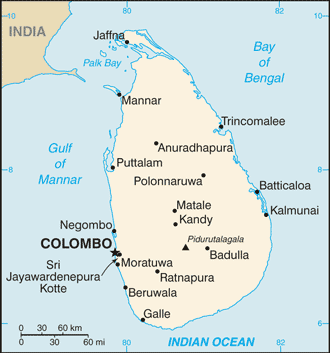It was a lovely Easter Weekend here in South Carolina, which is, after all, God’s Country. It was a weekend full of church, colorful clothes, a trip to the movies, and TONS of eating. If you’ve never celebrated a major holiday (that is, an Easter- or Christmas-level event) in the South, you’re missing out on good eatin’.
Unfortunately, less than a week after the Notre Dame fire, anti-Christian terrorists persecuted fellow brothers and sisters in Christ in three cities in Sri Lanka, the island nation to the south of India. The death toll is somewhere between 138 and 207, with approximately 450 others injured.
Islamist extremists committed these attacks on hotels and Christian churches, an act all-the-more wicked for its symbolic timing. As Christians flocked to worship the Resurrection of Christ Jesus, Muslim terrorists callously and opportunistically slaughtered them.
Sadly, these attacks are nothing new. In the wake of the Notre Dame fire—which was probably an accident, but could have been the result of foul-play—some news outlets quietly began to point to the persistent attacks on French churches that have been going on since February. Europe is particularly awash in shiftless, military-aged, unassimilated Muslim men, men easily radicalized into supporting and conducting these kinds of attacks. A shocking percentage of “moderate” Muslims support or condone terrorist attacks as sometimes justified.
I’m not as familiar with the issues Asian Christians face with Islam, but there have been attacks in the Philippines, as well as attacks on Christians of all stripes in North Africa and the Middle East.
Christianity faces twin threats today: the progressive Left and Islamism. The former is a more subtle, but increasingly bold, threat, that seeks to destroy Western Civilization from within. The latter is an external threat that is very upfront about its hatred for non-Muslims, but that also leverages the tolerance of Western societies to its advantage. The Left and Islam are allies of convenience, despite their many incompatibilities.
My prayers go out to all Christians facing persecution, from the small-scale persecution of mockery to the very real persecutions of death and intimidation. Christ promised us that, as Christians, the world would reject us, and persecution would be inevitable. In the United States, especially in the religious South, we’ve been spoiled, and have grown complacent, to threats to our faith. We should never forget the real men and women who gave their lives—and continue to risk them—to keep the faith.
Here’s hoping for some better news as the week progresses. Deus Vult!




